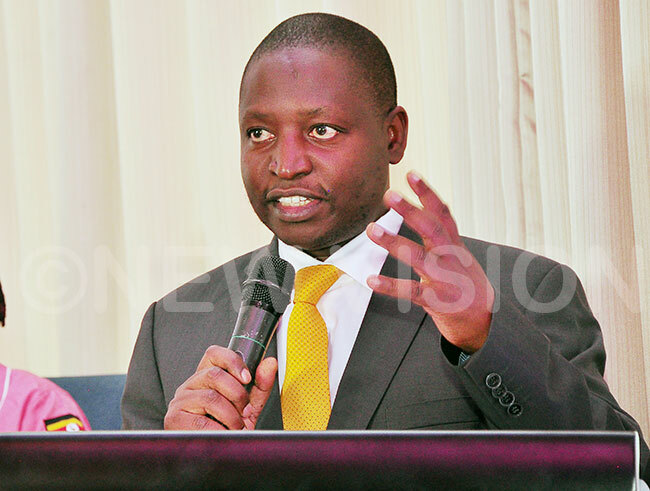Teenage pregnancy remains high - world report
During the ICPD held in Cairo in 1994, governments globally adopted a revolutionary agreement calling for women’s reproductive health and rights to take center stage in development efforts.
POPULATION
KAMPALA - The State Minister of Finance for Planning David Bahati has commended, United Nations Population Fund (UNFPA) for its support towards the implementation of the International Conference on Population and Development (ICPD).
During the ICPD held in Cairo in 1994, governments globally adopted a revolutionary agreement calling for women's reproductive health and rights to take center stage in development efforts.
Since then, access to voluntary family planning has expanded around the world. Today 58% of women use modern contraceptives compared to 52% to 1994.
Bahati who was on Thursday officiating at the press launch of the State of World Population 2019: Unfinished business - the pursuit of rights and choices for all in Kampala said UNFPA's technical and financial support has made a great difference.
In Uganda, 35% of women use modern family planning methods, an increase from 26% in 2006.
The number of women who die from pregnancy-related causes has dropped from 506 per 100,000 live births in 1995 to 336 in 2016 according to the National Population Council.
"This is great news for me who lost my mother at the age of three. I don't know the picture of my mother. I was told she died giving birth to the person who follows me," Bahati said.
 State Minister of Finance for Planning, David Bahati
State Minister of Finance for Planning, David Bahati
In 1994, a woman in Uganda was more likely to die from giving birth because of issues like lack of human resources, poor transport system and lack of qualified personnel, among others.
"It was also not easy for women to use contraceptives because of cultural norms, limited accessibility, and affordability. Women would go to traditional birth attendants where it was crude and mothers ended up dying," Bahati says.
Despite the progress made in addressing these issues, teenage pregnancy (25%) still remains an issue in Uganda and, this has contributed to high fertility (5.4 children per woman) and a high population growth rate of 3.0 percent and a youthful population with a high child-dependency ratio of 103.
"I don't know why men are going for young girls. It is very disturbing and we need to talk about these issues and find solutions," Bahati said.
Also, the maternal mortality rate remains high though it has reduced compared to 1994.
He noted that a lot needs to be done to ensure universal access to sexual and reproductive health, and rights services in Uganda and to ensure there is fast progress.
The UNFPA country representative Alain Sibenaler, called for stakeholders to accomplish the commitment they made in Cairo.
"We need to empower girls to make fundamental decisions about their own bodies. They must have the power to choose when to get pregnant, which man to marry, choose the contraception to use and have the power to say no," Sibenaler said.
Although Uganda has the second fastest growing population in the world at a rate of 3.3% Sibenaler says, if the population is educated, healthy and skilled, it will be an opportunity for Uganda.
"Now it's time to finish the unfinished business in pursuit of ensuring rights and choices for women and girls and access to education family planning and ending child marriages," Sibenaler said.
Uganda's population is projected to reach 70 million in 2040 at a time which the country projects to attain its middle-income status.
Rev. Moses Semugooma, from Mityana Church of Uganda, challenged fellow religious leaders to be champions of family planning and reproductive health.
"We should address the issue of saving mothers and fighting poverty through promotion of family planning," Semugooma says.
He says the world ensure the reproductive health and rights of all people are integrated into all aspects of life.